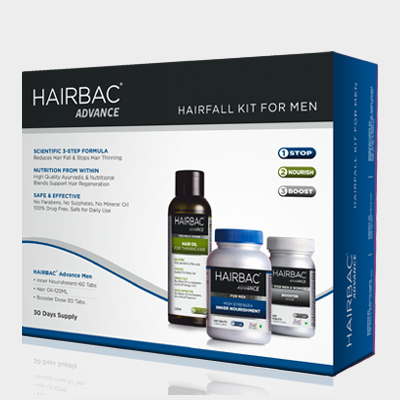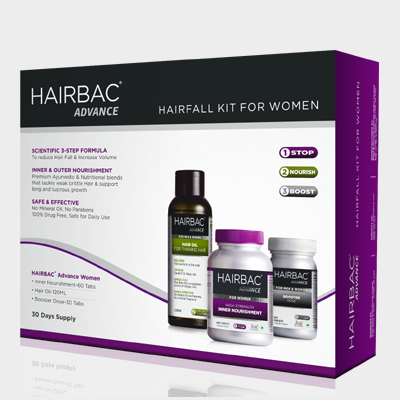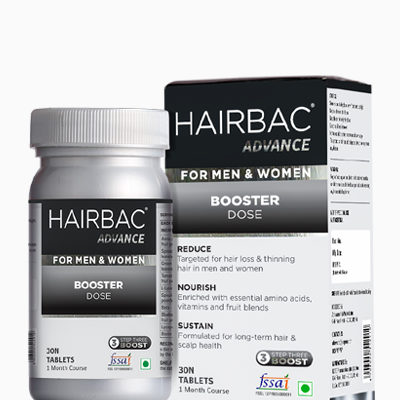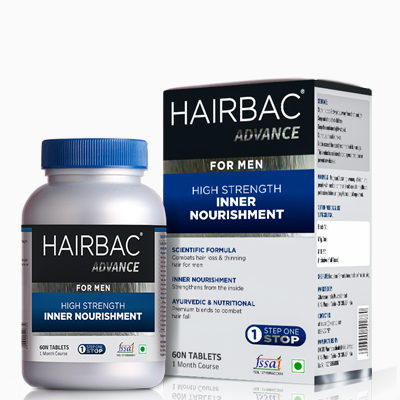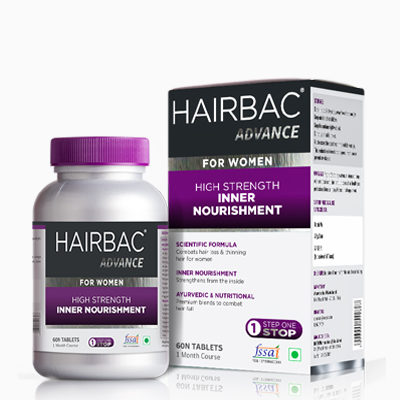When it comes to hair loss and hair thinning (wait – aren’t they the same thing?), every one of your aunties and uncles is an expert at giving you DIY tips: dahi and anda anyone? Or a rinse with onion juice? How about a shower with cold beer? Guilty x 3
We won’t pretend we’ve been around forever, but we do know a thing or two about hair and how to care for it.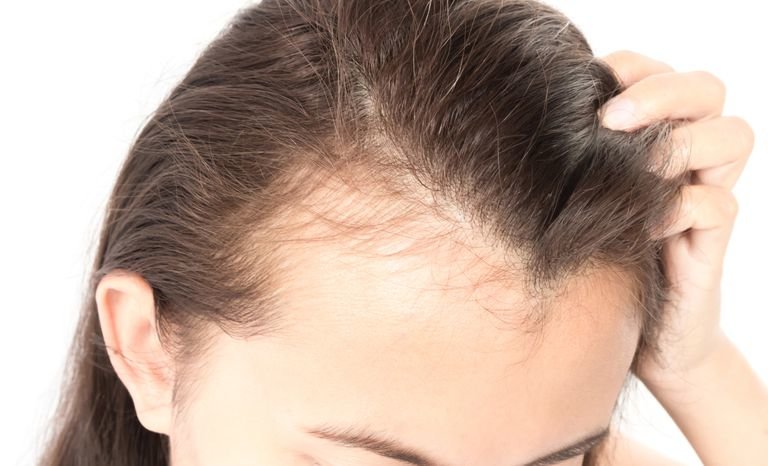
What is hair thinning?
Let’s get back to basics and begin by addressing the difference between hair loss and hair thinning. Hair loss is when there is an above normal decrease in the number of hair strands naturally attached to your scalp. On average, you lose about 50-100 hair strands in the course of a single day. If the hair strands you lose are roughly the length of your hair and have a white bulb at one end, then they were at the end of their life cycle and shedding those strands is completely natural. You should only be worried if your hair falls in a number greater than normal, and the falling strands are much shorter than your hair length without a pronounced white bulb at one end.
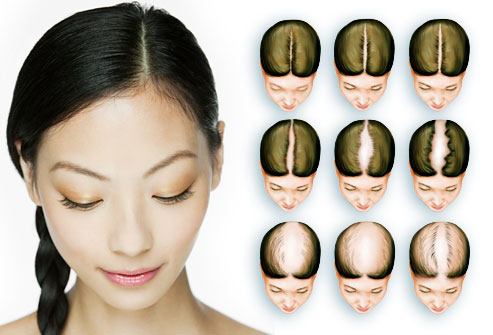
Hair thinning, on the other hand, is a noticeable decrease in the density of hair i.e. the decrease in the mass of hair in a fixed amount of space on your scalp. A good indicator of hair thinning in women is a decrease in the width of your ponytail if you have medium to long hair, or an increase in the tendency of your hairstyle to fall flat if you have short hair. For men, a receding hairline, less hair in the crown area, and a reduced ability to hold hair styles are all signs of thinning hair.
Why does it happen?
Hair thinning happens due to a combination of factors: age, emotional stress, environmental conditions, genetics, diet, and the products you use.
- Age and genetics are the most common and natural causes of hair thinning. As both men and women grow older, their hair starts to thin and fall out. The extent to which hair fall and thinning occurs is determined by a person’s genetics.
- Emotional stress is a silent culprit in premature hair fall and thinning. This is why you may notice a spike in hair fall, reduction in volume, and loss in shine around exams, deadlines, and tough times in your life. Hair fall and thinning caused by stress are often temporary and go away when the cause of stress dissipates.
- Environmental conditions such as air and water pollution can worsen hair fall and thinning. Generally, people who live in polluted environments experience premature hair thinning and increased hair fall.
- Diet plays an extremely important role in determining the health of your scalp. Chances are that if you aren’t getting enough iron, biotin, and protein in your diet, you aren’t getting adequate nutrition for stimulating new hair growth.
- The products you use can play a defining role in the health of your hair and scalp (read our article on the evils of sulfates, parabens, and mineral oils!). Products with harsh chemicals and cleaning agents tend to strip away your scalp’s natural oil barrier and make your hair weaker, leading to hair loss and thinning.
Additionally, hair thinning can also be a side-effect of an existing medical condition: for instance, if you are pregnant or lactating, going through hormonal changes, chemotherapy, or suffering from any existing skin infections or disease.
How do I stop my hair from thinning?
Now for some good news: in most cases, you can treat thinning hair by making simple adjustments to your diet, lifestyle, and hair products.
Oil massages
It turns out your mom was right all along: oiling your scalp is good for you! Massaging stimulates blood flow to your scalp, while oils inject a ton of nutrients and moisture into your scalp and hair shaft. Choose pure oils like olive, amla, sesame, coconut, and almond and find a combination that works well for your hair and scalp type. A few drops of essential oils like peppermint, tea tree, eucalyptus, and rosemary can be added to pure oils for their clarifying, soothing, and calming properties.
Vitamins and Minerals
A healthy body breeds a healthy scalp, so vitamins, minerals, and fatty acids play a big role in giving you lustrous locks. Nutrients like biotin, iron, B-vitamins, omega 3, omega 6, and zinc are essential not just for a balanced diet but also for hair healthy hair, skin, and nails. Consume leafy green vegetables, nuts and seeds, lean meat, eggs, and plenty of raw fruits and vegetables. You can also opt for supplements to boost your daily nutrition.
Protein intake
Proteins are literally the building blocks of hair – a protein called keratin makes up your hair strands. Hair thinning is often caused by the stripping away of keratin due to any of the above-mentioned factors. You can boost keratin production by consuming foods rich in high-quality proteins such as those found in legumes, seeds, fatty fish, and lean meats. Protein supplements are also a great addition since they often include many types of amino acids that lead to faster protein generation in your body.
Getting enough sleep
Getting enough sleep can make a world of difference! When you sleep, every cell in your body rests, recuperates, and rebuilds. Lack of sleep results in elevated levels of stress and tiredness in the short run, and may lead to nutritional deficiencies, hair loss and hair thinning in the long term. Hit the pillow for a healthy crown – most adults need at least 7 hours of quality, uninterrupted sleep every night.
Natural products
Harsh chemicals found in most mainstream hair products include sulfates, parabens, mineral oils, and artificial fragrances. These can dry out your scalp and damage your hair shaft over time. Opt for natural, herbal products enhanced with plant-based nutrients and essential oils for healthier scalp and hair.
The final verdict
Hair thinning can occur in any person, regardless of age and gender. Though it may seem like an uphill battle, hair thinning is easily treatable in most cases. Remember that there is no magic pill that can instantly cure hair thinning – it takes sustained efforts and changes on your part. Be kind to yourself, and have faith in your body’s amazing regenerative powers!
Hairbac ADVANCE products use the highest quality proteins, vitamins, and minerals to improve your scalp health and hair quality, besides boosting your body’s overall nutritional health.

